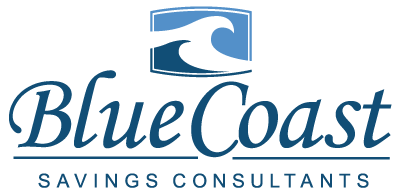Starting a Business – Deciding on a Business Structure
There are four main business structures, each with advantages and downsides. Deciding which is best depends on the service/product being sold, the intended size and scope of the business, relevant legal regulations and the entrepreneur’s ability to access capital and labor for business operations.
Recently we published a blog post about Start-up Business Basics. In that post one of the points we discussed was Deciding on a Business Structure. Today we’re going to dig a little deeper into that point.
This article is offered for information purposes only and is not meant to be legal advice. Please contact your attorney for information specific to your situation.
Sole Proprietorships
Sole proprietors have the most control and least paperwork regarding business operations and decisions. Taxes are simple compared to what is necessary for other business structures. Typically, sole proprietors are small business or skilled-trades operations that do not rely on debt for operations. Debt financing can be hard to come by since lenders perceive sole proprietorship ventures to be relatively risky. Most ominous for the entrepreneur, a sole proprietor has full legal liability for any claims brought against him. This means potential damages and court costs could eat into any other income he has, assets such as property and savings as well as future income.
Partnerships
Partnerships involve at least two people, with each sharing costs, profits, expertise and risk associated with a business. Members of a partnership have a slightly more complex tax arrangement than do sole proprietors. Sometimes, a professional accountant or tax lawyer may be required to properly file and, if necessary, represent partners in tax law proceedings. Partnerships can be filed as general or limited partnerships. In addition, joint ventures are a sub-type of general partnerships applicable for a short-term project or operation phase. Disputes over liability details, profit sharing and business strategies can derail a partnership. In terms of productivity and ROI of employees, hired employees or contractors can be brought on as partners as a reward for exceptional performance and dedication.
LLCs
Allowances and regulations for Limited Liability Companies (LLCs) vary state-by-state. The tax liability and paperwork of an LLC will depend in part on members’ decisions as to how to file, the number of members and whether or not any of the LLC members are foreign individuals or entities. A tax accountant is a requirement since LLC members can get in trouble for improper tax filing or payment moves. A unique risk that LLC members face is the lack of legal precedent regarding the finer points of liability. Nevertheless, it is undisputed that LLC members have substantial protection from debt obligations incurred as part of an LLC’s operations. This fact makes LLCs useful for ventures that are more capital-intensive than could usually be financed through sole proprietor or partnership business structures.
Corporations
It is usually agreed upon that establishing corporations should not be attempted by new entrepreneurs. The first thing about corporations is that they are complex. Though they allow vast operations, often on an international scale, the concomitant legal obligations necessitate entire departments of legal and/or accounting staff. The added expense and bureaucracy involved in managing a corporation make this business structure relatively stiff and slow to respond to evolving market conditions. Corporations allow for vast debt and equity financing that can be used for the most elaborate and complex production projects. Though corporate executives do have some personal responsibility and risk in their corporate decisions, the corporate legal structure provides substantial liability protection in the event of claims or suits filed against a corporation. If you’re still interested in setting up a corporation you might want to check into S Corporations, they are a fairly simple way to set up a corporate structure.
Summary
A business structure can affect an entrepreneur’s success as much as the core competency, product or service that is on sale. Generally speaking, liability protection, as offered by LLCs and corporations, goes hand in hand with greater start-up costs, tax complexity and other regulatory burdens. Most would agree that a new entrepreneur would be well-advised to stick to a sole proprietorship in a sector that is low-risk with regards to customer and/or government litigation. As he/she progresses and gets experience operating a business, partnerships, LLCs and even corporations become much more realistic options for future endeavors.
Starting a business can be a lot of fun. It can also be a lot of work. At Blue Coast Savings Consultants we offer a turn-key business opportunity much like that of a franchise except that there are no ongoing royalties to be paid and there is a relatively low initial licensing fee.
At Blue Coast we also have proven marketing strategies and numerous tools and programs to help you succeed as a Business Savings Consultant. Contact us today to learn more.





